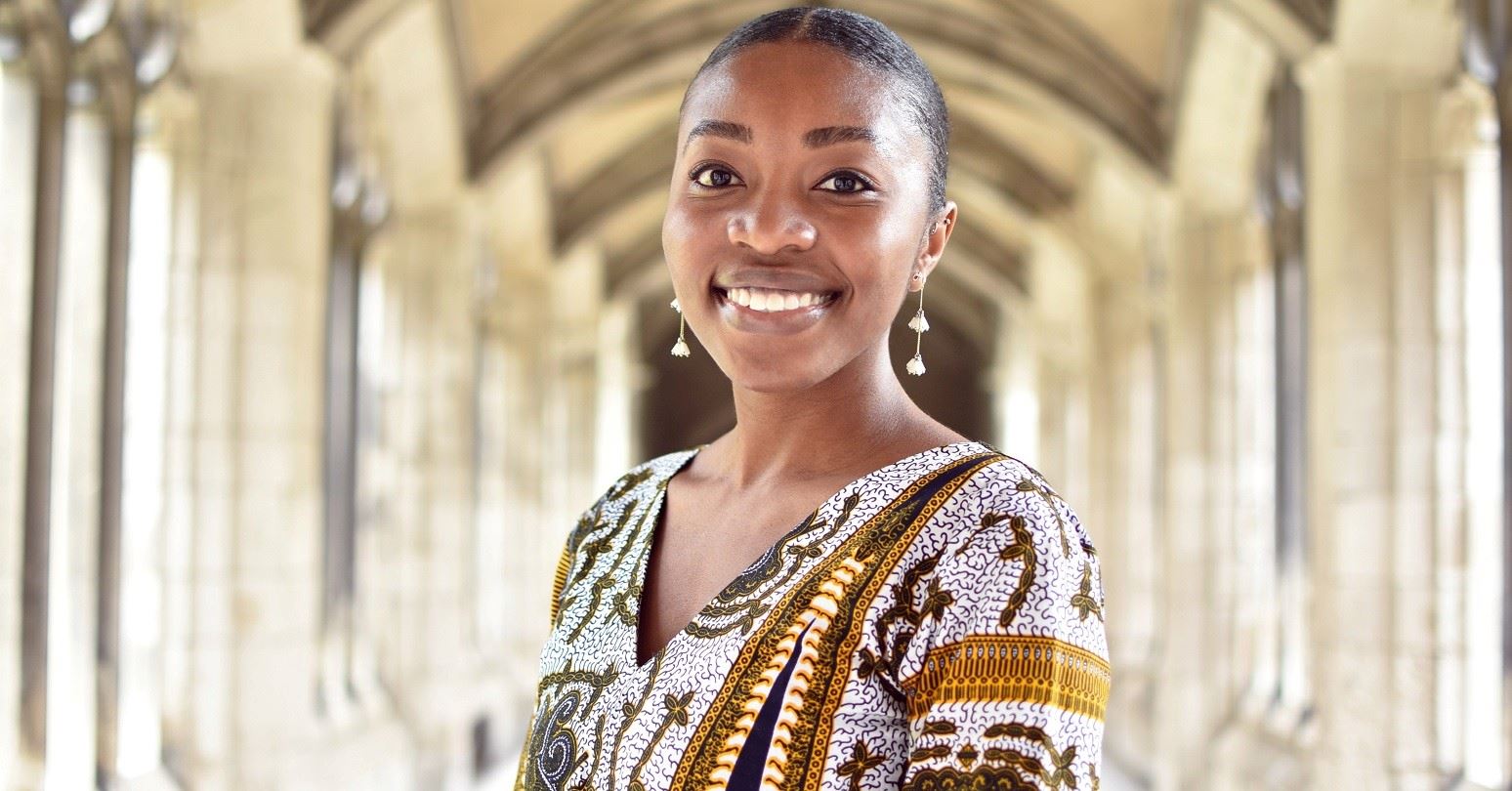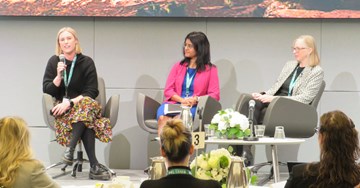When Mattel launched a Barbie doll in her likeness for the 2021 Barbie Role Models program, it was a full-circle moment for medical trailblazer Dr. Chika Stacy Oriuwa.
As a young girl who both played with Barbies and dreamed of being a doctor, she wanted to see herself reflected in these areas, but, sadly, did not. So Oriuwa set forth to be the role model she had longed for as a child, spearheading critical diversity and inclusion initiatives in health care along the way. Among her important advocacy work, Oriuwa became an ambassador of University of Toronto’s Black Student Application Program, which, in 2020, resulted in the Faculty of Medicine admitting the largest group of Black medical students in Canadian history.
As a keynote speaker for the HBA Leadership Character & Candour Conference, Oriuwa shared her “prescription” for authentic leadership and discussed the important roles that candour, allyship, and collective action play in advocating for change. It was part of a half-day conference hosted by Ivey’s Ian O. Ihnatowycz Institute for Leadership on the importance of character and candour in leadership, which included workshops and an address from award-winning entrepreneur and esteemed leadership expert Zahra Al-Harazi.
Speaking out against racism
Oriuwa, a University of Toronto psychiatry resident who will join the Centre for Addiction and Mental Health after her current maternity leave, also spoke openly about the discrimination she faced as the only Black student in her class at medical school. She shared distressing experiences – everything from being asked to clean up vomit, to patients refusing to receive medical care from her – and how they made her question whether she could, or even deserved to, pursue her dreams.
On the other hand, Oriuwa says this backlash also fueled her conviction to confront adversity in medicine and enabled her to step into a leadership role.
“Advocacy for me was a form of self-preservation. It was a way for me to process my pain and preserve my mental health,” she said. “It was important for me to trust my compass and to step up and do the right thing and use my voice, even in the face of adversity. That is really embracing this idea of candour and stepping up into your truth.”
Five steps of authentic leadership
Drawing from personal experiences, she said the evolution of a leader involves finding your truth (what drives you), your why (who you are appealing to), and your strengths (how you can show up for people). Her prescription for authentic leadership includes:
- Knowing your compass – Revisiting your truth to keep you on track in moments of adversity;
- Being curious and vulnerable – Doing an environmental scan and trying to understand what some of the difficulties might be among those you’re leading, even the aspects of your leadership;
- Embracing introspection – Being open to receiving feedback because it might not only enrich your leadership, but the environment for those you’re leading;
- Being comfortable with discomfort – Having bold conversations with yourself and those you’re leading; and,
- Having gratitude – Showing appreciation for those you lead is more likely to inspire their trust.
Lifting up others through leadership
Noting that being an authentic leader also involves safeguarding the authenticity of others, Oriuwa discussed the importance of allyship – educating yourself, helping others to rise to success, and embracing diversity in your life.
“Ultimately take stock of the diversity in your life. Try to diversify the different elements of your life, whether it’s art, films, food, or the books you’re reading,” she said.
Drawing a page from her medical training, she also shared how the well-known passage from the Hippocratic Oath of medicine, “Do no harm,” can and should be incorporated into leadership skills to cultivate organizational wellness.
“It’s important to ensure, as a leader, you are not unintentionally doing something or allowing things to happen in the environment that can not only be harmful towards yourself, but harmful towards the other individuals in the space,” she said. “When we think about organizational well-being, we want to frame adversity as belonging to the collective. It’s no longer, ‘That’s your problem, not mine,’ it’s, ‘This is our problem.’ You’re approaching things collectively.”
Oriuwa ended her presentation with a challenge for the next generation of leaders – one that involves navigating beyond the status quo and creating an equitable environment for all.
“I dare you to make room for those to step in from the margins. By doing this, you will not only empower yourself, but actually shift the culture of a collective and inspire a generation,” she said. “It’s only when we do this that the gaps in equity begin to close and opportunities for success are made available to all.”



